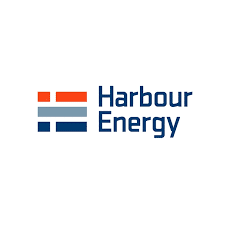Harbour Energy
Background
Harbour Energy is an oil and gas company based in the United Kingdom with operations in the UK’s North Sea, as well as Norway; Indonesia; Vietnam; Brazil; Mexico; and the Falkland Islands. According to the company’s website, 90 percent of its oil and gas production comes from the UK. [1], [2]
According to its website, Harbour aims to “deliver value in a responsible manner for all stakeholders in accordance with global standards, ensured by strong corporate governance, and to be Net Zero by 2035”. [3]
According to the company’s About Us page, Harbour Energy was founded by EIG Global Energy Partners, a Washington, DC-based private equity firm, in 2014. [3], [4]
In 2017, it backed Chrysaor Holdings Limited to acquire UK North Sea assets from Shell for $3.0 billion. In 2019, it acquired ConocoPhillips UK North Sea for $2.7 billion. [5]
In 2021, Chrysaor merged with Premier Oil plc in a reverse takeover to create Harbour Energy plc, making the newly-formed company the largest independent oil and gas company listed on the London Stock Exchange. [6]
Harbour Energy inherited interest in 80 North Sea licences from Chrysaor and 29 from Premier Oil through the merger.
Harbour outlines its exploration and production strategy on its Exploration page, stating that it believes “where oil and gas has already been discovered, more will be found”. Harbour says that its overall strategy is “to create value through infrastructure-led exploration around our core producing UK assets” alongside its Norwegian and international portfolio and to focus on “emerging and underexplored plays in proven hydrocarbon basins around the globe”. [7]
Stance on Climate Change
Harbour Energy claims to “share the concerns about climate change” and that it believes it is “imperative to address the environmental impact of our operations and assets around the world”. [8]
According to its sustainability page, Harbour says that it is “committed to playing our role in the transition to a lower carbon economy” and that it is “committed to achieving Net Zero greenhouse gas emissions by 2035”, but the company’s Greenhouse Gas Emissions page explains that its “net zero by 2035” commitment applies only to its scope 1 and 2 emissions. [9], [10]
While Harbour agrees that renewable energy will meet “a significant proportion of future global electricity demand,” it argues that oil and gas will “still have a vital role in ensuring a consistent delivery of energy to businesses and households”. [9]
On technologies that may be used to mitigate climate change, the company claims to “acknowledge and agree with the statement from the Committee on Climate Change (CCC), that carbon capture, utilisation and storage (CCUS) is critical to reducing CO2 emissions and meeting the UK’s 2050 emissions reduction targets”. [11]
Harbour has submitted two applications for carbon storage as part of the Humber V Net Zero project and has invested in the Acorn carbon capture and storage project, which “aims to capture CO2 emissions from the St Fergus Gas Terminal” and will sequester carbon offshore. The Acorn project is “part funded by the UK Government and the European Union, and is designated as a European Project of Common Interest (PCI)”. [11], [12]
The Acorn website says that the two-pronged project “unlocks the carbon capture and storage and hydrogen infrastructure essential for meeting our Net Zero targets” and that it “can be operational by the mid-2020s”. [13]
Key People
Linda Cook is the CEO of Harbour Energy, having been named to the role on April 1, 2021. Prior to her role at Harbour, Cook was Chairman of the Board at Harbour predecessor Chrysaor since 2014 and worked at Royal Dutch Shell for 29 years, retiring from the company in 2010. [14]
R. Blair Thomas is the Chairman of Harbour Energy and CEO of EIG Global Energy Partners, the private equity firm that founded Harbour in 2014. [15]
Phil Kirk is the President and CEO (Europe) of Harbour and was previously the CEO and founder of Chrysaor Group. Kirk is also on the board of Oil and Gas UK (OGUK), the country’s most prominent oil and gas industry association, a position he has held since 2013. [16], [17]
OGUK met with Kwasi Kwarteng, the Secretary of State for Business, Energy and Industrial Strategy, on 2 July and 15 July 2020 to discuss the North Sea Transition Deal — an agreement between the government and the oil and gas industry to invest £16 billion into the sector, support 40,000 jobs, and encourage North Sea companies to cut their emissions by 50% by 2030 with the goal of creating a “net zero basin” by 2050. [18], [19]
Chrysaor also met with Kwarteng on 3 September 2020 to discuss a “review of oil and gas licensing” when the government was considering whether or not to axe new licensing in the North Sea. The government ultimately decided to continue issuing new licences in the region for projects that pass a “climate compatibility test”. A DeSmog analysis found that companies and individuals involved in North Sea oil and gas donated a total of £419,900 to the Conservatives ahead of and during the review. [18], [20]
Actions
July 16, 2021
Harbour Energy announced that it had become a signatory to the “Zero Routine Flaring by 2030” initiative by the World Bank. [21]
Harbour CEO Linda Cook said in a company statement:
“At Harbour Energy our purpose is to play a significant role in meeting the world’s energy needs through the safe and efficient production of hydrocarbons, while creating value for our shareholders.” [21]
Cook added: “By endorsing this important initiative, we are reinforcing our commitment to responsible operations as we target Net Zero emissions by 2035.” [21]
April 21, 2021
In a Wall Street Journal article about smaller oil and gas players “snapping up” assets from larger players, Harbour Energy Chairman R. Blair Thomas said: “While I agree that the direction of traffic is one way, toward renewables, I think it’s going to take longer than people think”. [22]
Thomas’s comments aligned Harbour with what the Wall Street Journal called “a band of smaller competitors that wager that fossil fuels will remain the world’s main energy source for years to come, particularly in developing countries,” saying that he expected crude oil prices to increase as oil majors pull back on their investments. [22]
Thomas added: “Capital that is not being spent now, is production that the industry won’t have two or three years from now”. He went on to say: “The question is, will renewable penetration happen fast enough so that as demand comes back you don’t create a pinch? I tend to think it won’t.” [22]
April 1, 2021
In an interview with the Financial Times, Harbour CEO Linda Cook highlighted the company’s plan to purchase assets offloaded oil majors as they “streamline their portfolios” and increase their investments on renewable energy.
Regarding Harbour’s commitments to the future of green energy in the UK, including through its investments in the Acorn carbon capture and hydrogen project and the Humber Zero project, Cook said: “We do have a focus on ESG and we have made a commitment to be net zero by 2035, we take that very seriously.” [23]
She added: “if we find new assets then great, if we don’t then I’m sure that shareholders will be more than happy to take the money we’ll generate off our hands.” [23]
September 10, 2020
In a panel discussion titled “Mythbusting the Energy Transition” and prior to Chrysoar’s merger with Premier Oil to become Harbour Energy, Chrysaor’s CEO Phil Kirk spoke with the Energy Institute, a professional membership body for the energy industry, about renewable energy, carbon capture and storage, and the future of oil and gas production in the North Sea and beyond.
Kirk claimed that oil and gas will still be a key part of the UK’s energy supply for decades, saying:
“I mean I would love, you know the government – or, you look at the Climate Change Committee, you look at all the forward projections, and we’re still using a million barrels a day equivalent of hydrocarbons way out in 20 or 30 years time. I would love [if] all of that came from the UK, maybe with a bit of backup as well from Norway and an agreed structure [for] how that worked, but there’s no reason that cannot be net zero supply. And it’s British jobs and it’s British engineering. Why would that not be a good thing for this country’s roadmap? It must be.” [24]
Kirk said later in the discussion that the in the balance between governments, society, and companies driving the energy transition that the responsibility to drive change ultimately falls to the government.
Kirk said:
“It’s almost impossible for a corporate to lead any government. You can enable, you can spend a lot of your life sitting on work groups and talking to politicians and civil servants, and trying to show some of the issues and barriers that need to be, need to be knocked out of the way, but basically it’s gonna have – it has to come down on a policy initiative. It’s okay to say ‘Net Zero 2050, or 2045’ – brilliant. My kids could say that and know it was a good thing. How we get there, how we put the pieces in place, what it means for the different parts of society, that’s the really tough question that is down to, that has to be down to government. Something so new and evolving so quickly, you know, has to be, has to have a policy framework, and it has to have as many pieces as possible, but they have to be clever enough to change it as we go.” [24]
Related Organisations
- Oil & Gas UK – Harbour CEO, Europe Phil Kirk has been on the board since 2013. [17]
Contact & Address
According to its website, Harbour Energy has five offices in the United Kingdom: [25]
The Capitol Building
431 Union Street
Aberdeen AB11 6DA
Rubislaw House
Anderson Drive
Aberdeen AB15 6FZ
Prime Four
Kingswells
Aberdeen AB15 8PU
Brettenham House
Lancaster Place
London WC2E 7EN
23 Lower Belgrave Street
London SW1W ONR
Social Media
- “Harbour Energy” on Twitter.
- “Harbour Energy” on Facebook.
- “Harbour Energy” on LinkedIn.
- “Harbour Energy” on YouTube.
Resources
- “Operations,” Harbour Energy. Archived July 27, 2021. Archive.ph URL: https://archive.ph/j5ewT
- “United Kingdom,” Harbour Energy. Archived July 29, 2021. Archive.ph URL: https://archive.ph/tnHqW
- “About us,” Harbour Energy. Archived July 27, 2021. Archive.ph URL: https://archive.ph/0xCUY
- “About us,” EIG Partners. Archived July 27, 2021. Archive.ph URL: https://archive.ph/y5V5u
- “About us: Key facts,” Harbour Energy. Archived July 29, 2021. Archive.ph URL: https://archive.ph/X5J8Q
- Mark Williamson. “Appeal of North Sea underlined by UK’s biggest oil independent,” The Herald, April 2, 2021. Archived April 2, 2021. Archive.ph URL: https://archive.ph/hGSGX
- “Exploration,” Harbour Energy. Archived July 27, 2021. Archive.ph URL: https://archive.ph/XzS9C
- “Planet,” Harbour Energy. Archived July 27, 2021. Archive.ph URL: https://archive.ph/PMaIJ
- “Sustainability,” Harbour Energy. Archived July 27, 2021. Archive.ph URL: https://archive.ph/PCgZR
- “Greenhouse Gas Emissions,” Harbour Energy. Archived July 27, 2021. Archive.ph URL: https://archive.ph/TU3ip
- “Carbon Capture & Storage,” Harbour Energy. Archived July 27, 2021. Archive.ph URL: https://archive.ph/UhjiX
- “Acorn project,” Harbour Energy. Archived July 27, 2021. Archive.ph URL: https://archive.ph/8GyIQ
- “Acorn,” The Acorn Project. Archived July 9, 2021. Archive.ph URL: https://archive.ph/wRPwh
- “Linda Z. Cook,” Harbour Energy. Archived July 29, 2021. Archive.ph URL: https://archive.ph/4OGx5
- “R. Blair Thomas,” Harbour Energy. Archived July 29, 2021. Archive.ph URL: https://archive.ph/woAQO
- “Phil Kirk,” Harbour Energy. Archived July 29, 2021. Archive.ph URL: https://archive.ph/EhaVF
- “Governance,” Oil and Gas UK. Archived July 29, 2021. Archive.ph URL: https://archive.ph/rTIAY
- “BEIS ministerial meetings, July to September 2020,” GOV.UK, March 19, 2021. Archived July 29, 2021. Archive.ph URL: https://archive.ph/KEcSd
- “North Sea Transition Deal,” GOV.UK, March 24, 2021. Archived June 7, 2021. Archive.ph URL: https://archive.ph/XMppB
- Rachel Millard. “North Sea strategy shift in the pipeline as world goes green,” The Telegraph, October 10, 2020. Archived March 16, 2021. Archive.ph URL: https://archive.ph/RWuvS
- Andreas Exarheas. “Harbour Energy Commits to End Routine Flaring,” Rigzone, July 16, 2021. Archived July 29, 2021. Archive.ph URL: https://archive.ph/0hMuL
- David Hodari. “Energy Giants Ditch Oil and Coal Projects. Smaller Rivals Want Them.” The Wall Street Journal, April 21, 2021. Archived July 28, 2021. Archive.ph URL: https://archive.ph/3ucfW
- David Sheppard. “A new Harbour in oil’s storm?,” Financial Times, April 1, 2021. Archived April 4, 2021. Archive.ph URL: https://archive.ph/PuPSE
- “Mythbusting the Energy Transition: Phil Kirk FEI,” YouTube video uploaded by user Energy Institute on September 10, 2020. Archived .mp4 on file at DeSmog.
- “Contact us,” Harbour Energy. Archived July 26, 2021. Archive.ph URL: https://archive.ph/QLZSW






